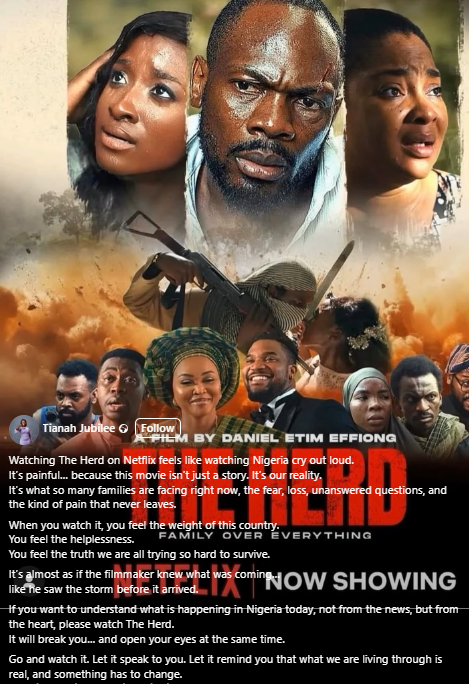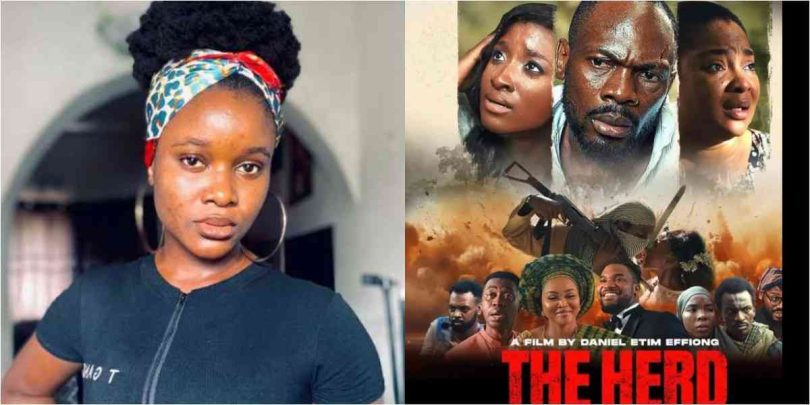A lady who watched Daniel Etim-Effiong’s debut film, The Herd on Netflix has shared her touching review of the controversial movie.
Tianah Jubilee, a fashion designer, described the movie as more than just entertainment, calling it a raw depiction of Nigeria’s current reality.
According to Jubilee, watching The Herd felt like “watching Nigeria cry out loud.”
She noted that the movie portrays the helplessness and challenges that many Nigerians face daily, making it more than just a work of fiction.
Movie That Mirrors Reality
The Herd, a crime thriller set in Ekiti State, follows a wedding that turns into a fight for survival after the couple and some travelers are kidnapped by gunmen disguised as herdsmen.
The film first premiered in cinemas on October 17 before its Netflix release on November 21.
Emotional and Eye-Opening Experience
Jubilee described the movie as a deeply moving experience. She wrote:
“Watching The Herd on Netflix feels like watching Nigeria cry out loud. It’s painful… because this movie isn’t just a story. It’s our reality. It’s what so many families are facing right now, the fear, loss, unanswered questions, and the kind of pain that never leaves. When you watch it, you feel the weight of this country. You feel the helplessness. You feel the truth we are all trying so hard to survive. It’s almost as if the filmmaker knew what was coming… like he saw the storm before it arrived.”
A Call for Awareness
Jubilee urged Nigerians to watch the film to understand the country’s reality.
“If you want to understand what is happening in Nigeria today, not from the news, but from the heart, please watch The Herd. It will break you… and open your eyes at the same time. Go and watch it. Let it speak to you. Let it remind you that what we are living through is real, and something has to change,” she said.
Netflix Release Draws Attention
Since its Netflix debut, The Herd has drawn attention for its realistic portrayal of societal challenges, leaving many viewers moved and reflecting on the daily struggles faced by Nigerians.
See below;


